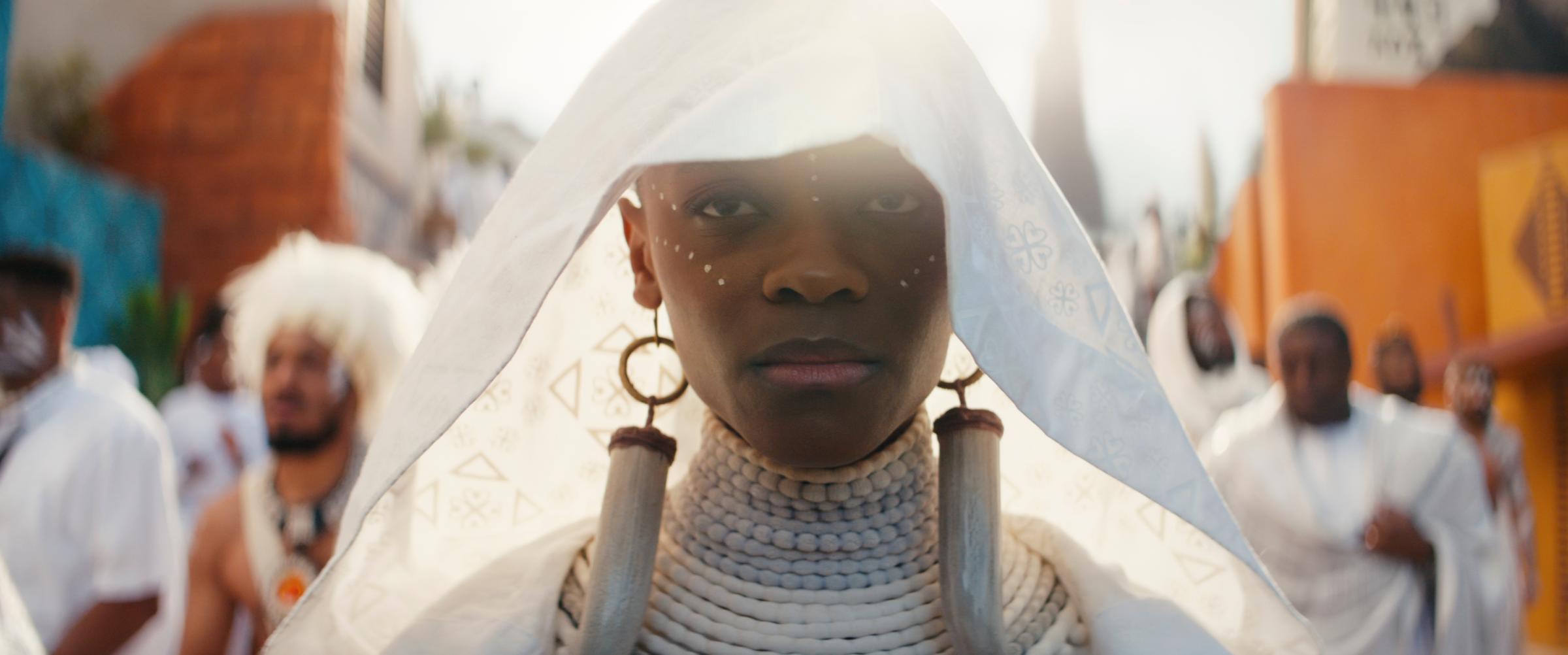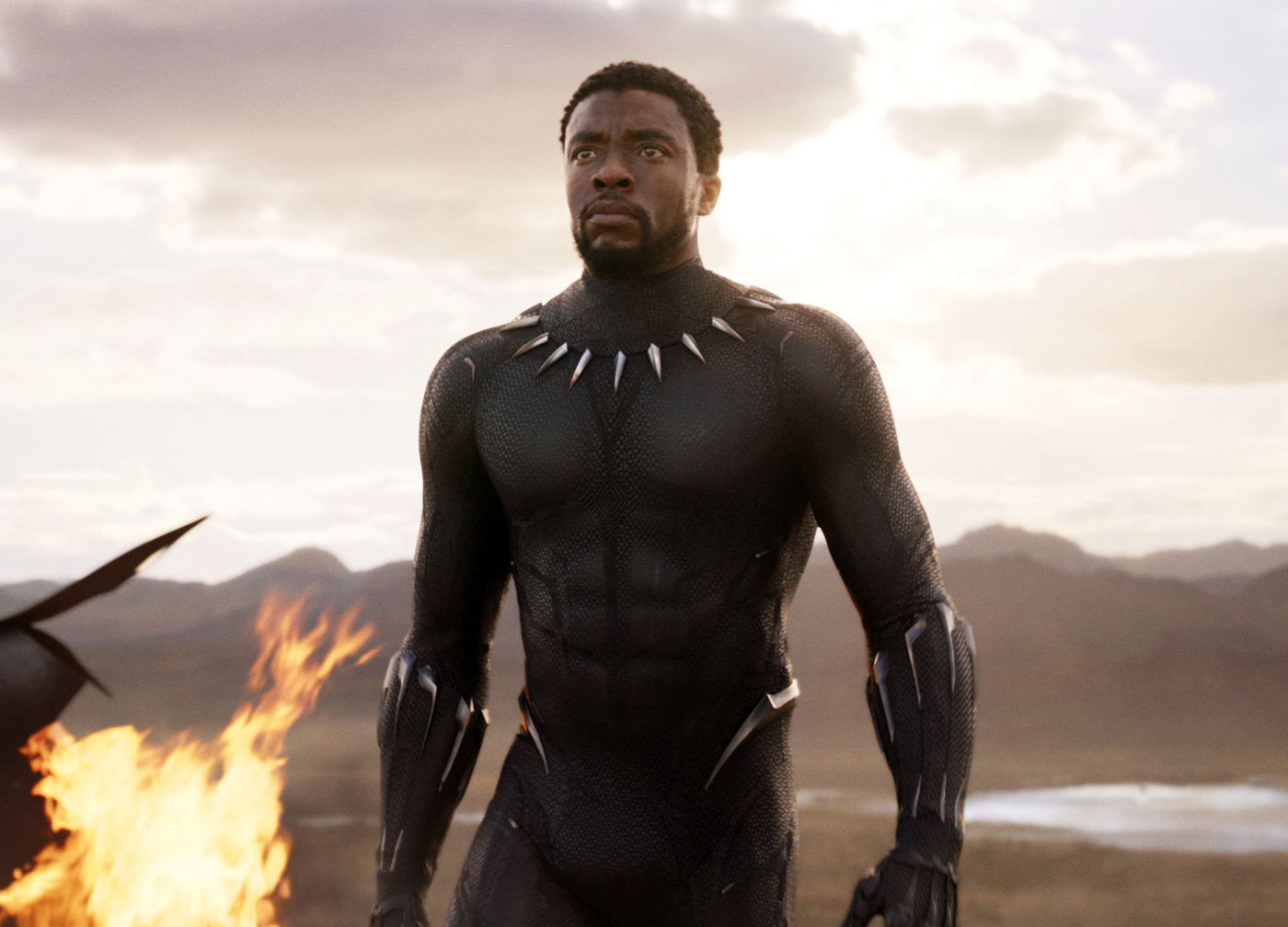Black Panther: Wakanda Forever, now streaming on Disney+, brings audiences back to Wakanda for the first time since 2018. Viewers were first introduced to the Black Panther character in 2016’s Captain America: Civil War when King T’Chaka showed his support of the Sokovia Accords, which he later agreed to sign. This agreement stated the United Nations would supervise the Avengers and other superheroes. A terrorist attack at the signing killed T’Chaka, and T’Challa, played by the late Chadwick Boseman, set out to avenge his father. In 2018, a standalone Black Panther film brought Wakanda and its inhabitants to the rest of the world.
Wakanda is one of the Marvel Cinematic Universe’s most critical settings—as established in the beginning of Black Panther, a meteorite made of vibranium, one of the most powerful metals in the universe, crashed there, providing the opportunity to create one of the most technologically advanced civilizations in the world. The Wakandan people have long taken an isolationist stance when it comes to sharing their technology and vibranium with other countries. Black Panther opens by showing Wakanda’s many riches.
Here’s what you need to remember before watching Marvel’s latest film, Wakanda Forever.

The plot of Black Panther
The movie begins by explaining how a meteorite made of vibranium, believed to be a gift from the Panther god, Bast, crashed into Wakanda. The meteorite mutated a plant called the heart-shaped herb, which was ingested by one of the warriors and gave him superpowers. He becomes the first Black Panther and is a great uniter of all the tribes in Wakanda except for one, the Jabari, who live in the mountains.
To avoid sharing resources or information with other countries, Wakanda disguises itself as a poor country, hiding that they’ve built a sprawling metropolis. A flashback to 1992 shows King T’Chaka visiting his brother N’Jobu in Oakland, Calif., who is undercover. T’Chaka accuses him of helping Ulysses Klaue, a black market arms dealer, with stealing vibranium from Wakanda. N’Jobu’s right-hand man had lied to him and revealed himself to be a Wakandan named Zuri.
In present day, following T’Chaka’s death, viewers are introduced to T’Challa right before his coronation, which includes a ceremonial event where any tribe in Wakanda can battle T’Challa for the throne. M’Baku, played by Winston Duke, of the Jabari tribe challenges him, but in the end, M’Baku yields, and T’Challa becomes the King of Wakanda.
T’Challa, given the heart-shaped herb by Zuri, ingests it and is able to visit an ancestral plane where he can speak with his father, and after their conversation, he officially takes the throne and becomes the Black Panther. In London, Erik Stevens steals a Wakandan artifact made of vibranium from a museum and gives it to Klaue. The Wakandans are alerted that an artifact was stolen by Klaue and is set to be sold to an unknown dealer in South Korea. T’Challa, Okoye—the general of the Wakandan army, the Dora Milaje—and his ex-girlfriend, Nakia, all go to South Korea to stop the deal. When they get there, CIA agent Everett Ross is revealed to be the buyer and promises to hand Klaue over to T’Challa after the U.S. has captured him and was “finished with him.” But T’Challa refuses and captures Klaue.
Read More: There’s a Gaping Hole at the Center of Black Panther: Wakanda Forever—and It’s No One’s Fault
Klaue escapes with Stevens’ help. He then kills Klaue and takes his plane to Wakanda. Once there, Stevens interrupts a council meeting and to reveal that he was the son of N’Jobu, who was killed by T’Chaka the night he visited Oakland in 1992. He calls Wakanda out on its selfishness because Black people around the world have been oppressed for years, and they have never done anything to help. He challenges T’Challa to a duel for the throne, and after some arguing, he obliges. Without the power of Black Panther, T’Challa is defeated in combat and thrown off the side of a waterfall, making Stevens—Killmonger—the King of Wakanda. He orders the Wakandans to burn all the heart-shaped herb, so that only he can have the Black Panther’s powers. But Nakia is able to steal one.
Nakia takes Queen Ramonda, Princess Shuri, and Agent Ross to the Jabari people in the mountains, where M’Baku reveals a fisherman found T’Challa’s body. Nakia givesT’Challa a heart-shaped herb. He fights and eventually kills Killmonger and eventually, restoring his place as King of Wakanda.
The movie ends with T’Challa making Shuri the head of the Wakandan International Outreach Center in Oakland so that Wakanda can share its science and technology, and Wakanda joins the United Nations with an impassioned speech by T’Challa.

Infinity War and Endgame
Avengers: Infinity War shows the antagonist Thanos traveling around the universe collecting the Infinity Stones for the Infinity Gauntlet so that he can get rid of half of Earth’s population to solve the overpopulation problem. One of the last stones Thanos had to collect was the Mind Stone that was implanted in Vision. To help extract the stone without killing him, the Avengers took Vision to Wakanda. Thanos found out where they were and an all-out war raged through Wakanda with heroes across different titles fighting together to protect Vision. In the end, Thanos took the stone from Vision, killed him, snapped his fingers and half the population turned to dust including T’Challa and half of the Wakandan army.
Avengers: Endgame saw the remaining half of the population grapple with the loss of loved ones. The Avengers that are left behind assemble, and in one of the most epic battles in the MCU towards the end of the movie, they are able to bring back all the people that were casualties of “The Blip,” including the Wakandans and T’Challa.
Boseman’s death
In August 2020, it was announced that Boseman had died after privately battling colon cancer. He never spoke about the diagnosis publicly, but according to The Hollywood Reporter, a handful of people outside his family knew about the illness. Director Ryan Coogler told The Hollywood Reporter that he was in the middle of writing the sequel when Boseman passed. “You’ve got to keep going when you lose loved ones,” Coogler said. “I know Chad wouldn’t have wanted us to stop.”
There was public outcry about what to do next, but Disney said they would take their time and figure out how to proceed. In December 2020, Kevin Feige, Marvel Studios president, announced during a Disney investors presentation that Boseman’s character would not be recast and the sequel would “honor the legacy that Chad helped us build through his portrayal of the king of Wakanda. We want to continue to explore the world and all the rich and varied characters introduced in the first film.”
More Must-Reads From TIME
- The 100 Most Influential People of 2024
- Coco Gauff Is Playing for Herself Now
- Scenes From Pro-Palestinian Encampments Across U.S. Universities
- 6 Compliments That Land Every Time
- If You're Dating Right Now , You're Brave: Column
- The AI That Could Heal a Divided Internet
- Fallout Is a Brilliant Model for the Future of Video Game Adaptations
- Want Weekly Recs on What to Watch, Read, and More? Sign Up for Worth Your Time
Write to Moises Mendez II at moises.mendez@time.com